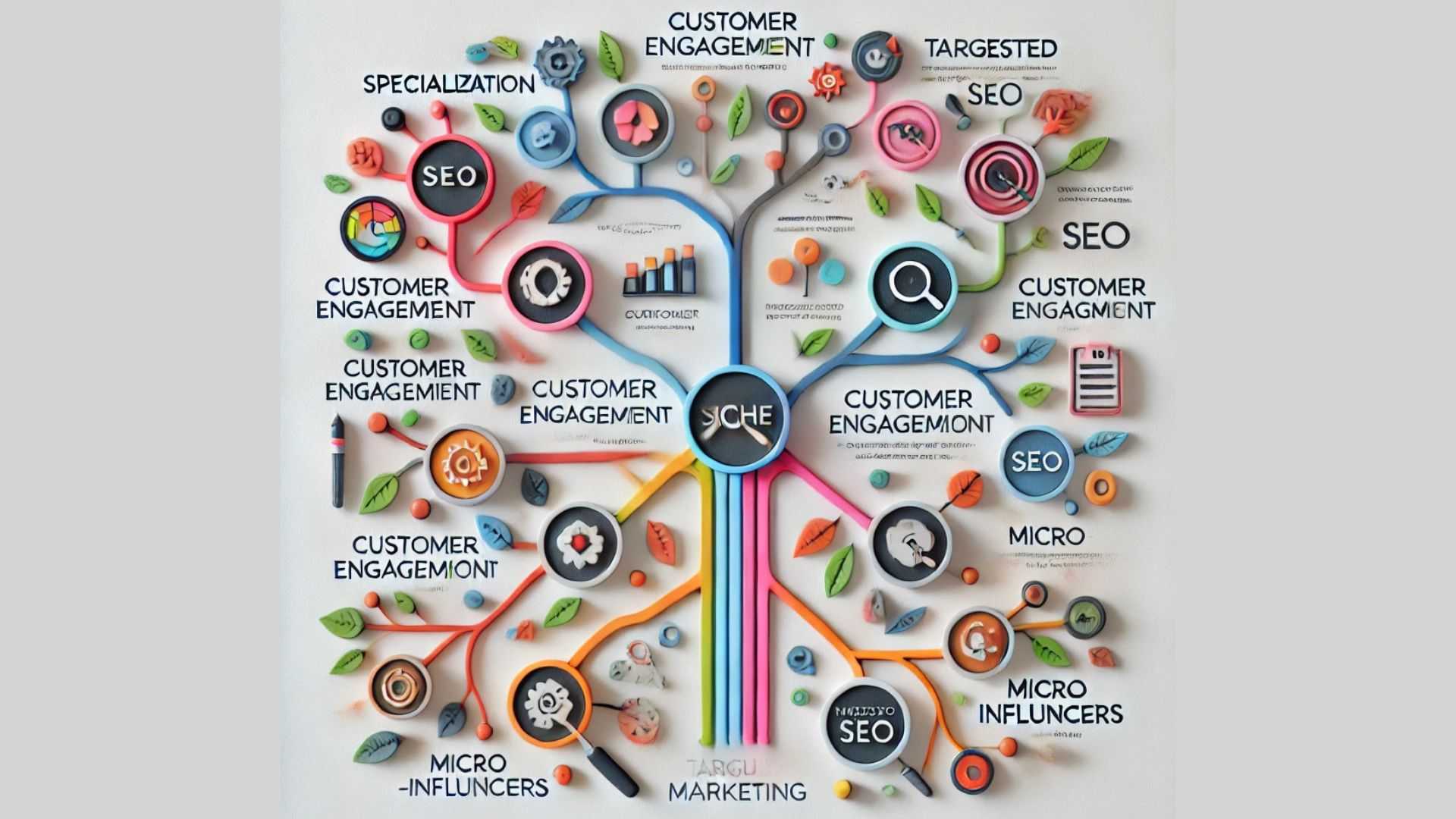Have you ever felt like you're shouting into the void when marketing your business? That's because broad marketing doesn't always work. Instead of competing with industry giants, why not focus on a smaller, more specific group of people who genuinely need what you offer? That's where niche marketing comes in.
Think of it like this: What if you targeted busy moms looking for quick home workouts instead of selling fitness products to everyone? Now, you're talking to a specific audience with specific needs. This focused approach can lead to higher engagement, stronger brand loyalty, and better conversions.
Find Your Unique Angle
Why Specialization Wins
A small bakery in New York struggled to compete with larger chains. Instead of trying to sell everything, they focused on gluten-free pastries. Within months, word spread among gluten-intolerant customers, and business skyrocketed. This is the power of specializing in a niche.
How to Identify Your Niche
- Passion + Market Demand: What are you passionate about? Is there an audience for it?
- Competition Check: Are there too many businesses doing the same thing? Can you bring a unique angle?
- Customer Pain Points: What specific problems can you solve better than others?
When you focus on a niche, you're not just selling a product but solving a problem for a particular group.
Speak Your Audience's Language

Understanding Your Customer's Mindset
Imagine you're selling eco-friendly baby products. Your customers aren't just parents—they're parents who care deeply about sustainability. They worry about chemicals in baby wipes, the environmental impact of diapers, and the safety of baby food containers.
If your marketing sounds too generic, they won't connect with it. Instead of saying, "We sell organic baby products," try "Safe, eco-friendly baby essentials for parents who care about the planet."
Where to Find Your Audience's Language
- Read online forums where your audience hangs out
- Look at reviews of similar products to see what customers love or complain about
- Use social media polls to ask directly what they want
The closer your messaging aligns with your audience's thoughts, the more they'll trust you.
Build a Loyal Community
The Power of Connection
For coffee aficionados who like brewing at home, a small coffee manufacturer created a Facebook community. Instead of constantly pushing sales, they shared tips, recipes, and fun coffee-related content. Over time, their group became a thriving community, and when they launched a new product, they had a loyal base of buyers waiting.
How to Create a Community Around Your Brand
- Start a Facebook group, Discord server, or Telegram chat
- Engage in niche-specific subreddits or online forums
- Host live QA sessions or interactive events
- Feature user-generated content on your social media
When people feel like they belong to a community, they don't just buy from you—they stick with you.
Content That Solves Problems
Why Content Matters
If someone searches for "best ways to reduce back pain while working from home" and finds your blog packed with valuable tips, they're more likely to trust you. Later, when they see your ad for an ergonomic chair, they're already interested.
Types of Content That Work Best for Niche Marketing
- Blog posts how-to guides (e.g., "The Best Skincare Routine for Sensitive Skin")
- Videos tutorials (e.g., "How to Train Your Dog in 5 Minutes a Day")
- Infographics (e.g., "The Benefits of a Keto Diet")
- Case studies testimonials (e.g., "How Sarah Lost 20 Pounds with Our Meal Plan")
Instead of focusing on sales, focus on helping. The more you help, the more people trust you.
Collaborate with Micro-Influencers
Why Small Influencers Are More Powerful Than You Think
A startup selling minimalist wallets partnered with an Instagram influencer who had 10,000 followers—not a huge audience, but highly engaged. The influencer shared a personal story about why they switched to minimalist wallets, and within a week, sales increased by 40%.
How to Find the Right Influencers
- Look for people with 5K-50K engaged followers
- Make sure their audience aligns with your niche
- Reach out with a personal message (avoid generic outreach!)
- Offer free products or affiliate commissions instead of big paychecks
Working with small influencers often drives higher trust and better conversions than big celebrity endorsements.
Use Niche-Specific SEO Strategies
Targeting Long-Tail Keywords
Instead of trying to rank for "fitness tips," which is incredibly competitive, try "best home workouts for seniors" or "quick workouts for busy moms." These long-tail keywords have less competition and attract a more targeted audience.
How to Find Niche Keywords
- Use Google's autocomplete suggestions
- Check "People Also Ask" questions in search results
- Use free tools like Ubersuggest or AnswerThePublic
SEO isn't just about ranking—it's about bringing the right people to your content.Offer Something No One Else Does
Creating a Unique Selling Proposition (USP)

What makes your product or service different? If you're just another coffee brand, you won't stand out. But if you offer hand-roasted beans from women-led farms, you suddenly have a unique angle.
Examples of Strong USPs
- All-natural deodorant for ultra-sensitive skin
- Dog treats made from locally sourced, organic ingredients
- Online courses specifically for self-taught musicians
Find what makes you unique, and highlight it in everything you do.
Niche marketing isn't about reaching everyone—it's about reaching the right people. You may construct a successful business by concentrating on a specific target, communicating with them in their language, and earning their trust. Remember, the key is to solve real problems for a well-defined group. So, what niche are you going to focus on? The right strategy can turn a small idea into a booming business.
FAQs
1.What is niche marketing?
With items or services designed to fit their demands, niche marketing aims to reach a particular clientele.
2.Why is niche marketing effective?
It builds stronger customer connections, increases brand loyalty, and often leads to better conversion rates.
3.How can I find my niche market?
Identify your passions, assess market demand, check competition, and solve specific customer pain points.
4.What types of content work best for niche marketing?
How-to guides, videos, case studies, and community-driven content that solve audience-specific problems are highly effective.
5.How do micro-influencers help in niche marketing?
Micro-influencers have a highly engaged audience, leading to better trust and conversions for niche products.











